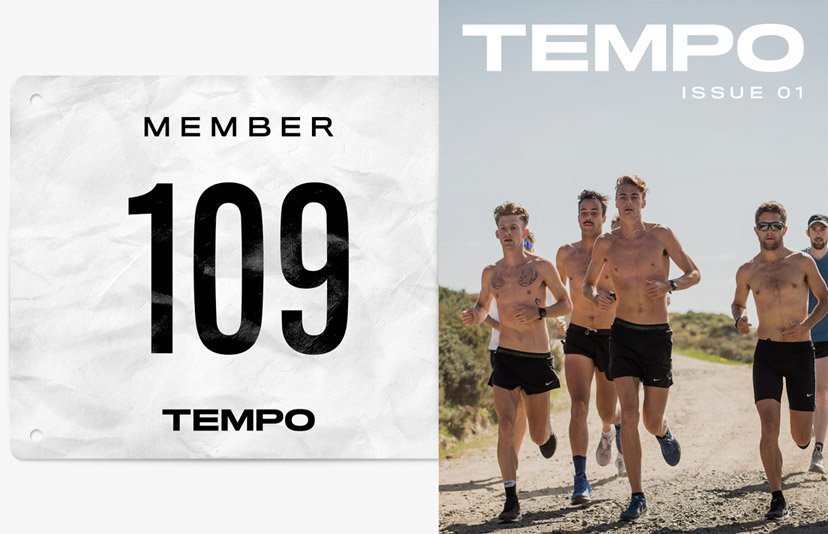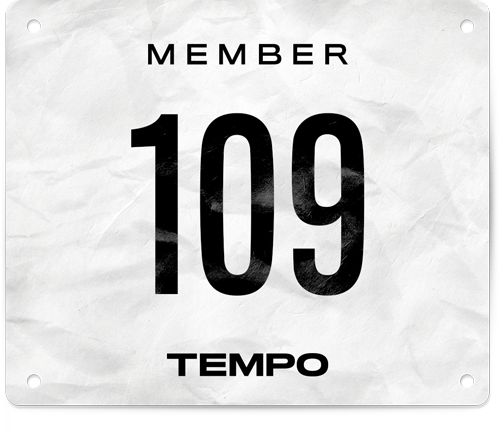Performance
What to watch for at the Olympics: Sean’s picks
Men’s 800m, women’s 400m hurdles, men’s marathon
Editor’s note: We’ve invited two athletics-obsessed writers, one American, one Australian – Tim Rossi and Sean Whipp – to share which events they’re psyched for at the Paris Olympics. You can read Tim's picks here.
What makes the Olympic Games so special in the minds of sports fans? It’s a question we could cast aside a few thousand words for – but alas, the editors would have my head on a platter. (Editor: Actually Sean, we’d be so here for that.) But in short, we know as athletics fans that we see identical World Championship start lists every two years. Yet every four years the sport is thrust into mainstream media coverage as an original Olympic discipline. With this coverage comes a heightened sense of opportunity, a fleeting chance for athletes to etch their names alongside champions known by the general public and athletics diehard alike.
For different competitors, Paris represents a chance to burst onto the scene, stake a claim as one of the world’s very best or take a final swing at the perfect end to a career.
With these thoughts in mind, we turn to the most manic of events in 2024.
Men’s 800m: What is going on?!
The men’s 800m has seen four athletes add their names to the all-time top 10 list this season, as 2022 World Championship silver medallist Djamel Sedjati (Algeria) leads the charge. Sedjati’s astonishing series of 1:41 runs in Paris and Monaco brought on times not seen since 2012.
With Sedjati joined by Emmanuel Wanyonyi (Kenya, 1:41.58), Gabriel Tual (France, 1:41.61) and Mohamed Attaoui (Spain, 1:42.04), the Olympic 800m presents a dilemma for those of the time-trial preference. Devoid of the usual Diamond League pacemakers, two gentlemen hold reputations as confident front runners. At the US Olympic trials, Bryce Hoppel led from gun to tape with a 1:42.77 meet record, brandishing a similar skill set to front-running world champion Marco Arop (Canada, 1:42.85).
But if you’re on the couch at home, this one might not play out as the athletes' respective PBs suggest. Watch for Sedjati to sit on the shoulder of the field to the 600m mark prior to letting loose, a tactic his rivals will be aware of and actively looking to interrupt.
Note: Such is the depth in the two-lap race that the names above may miss the podium in place of Ben Pattinson (GB, 1:42.27) or Elliot Crestan (Belgium, 1:42.43). The past year in 800m running has seen a few keen commentators ponder if Paris may see a repeat of London 2012’s supercharged final.
Women’s 400m hurdles: a dream match
Rarely does an event present such a clear race for third place.* Only three women have broken the 52-second barrier in the 400m hurdles: Sydney McLaughlin-Levrone (USA, 50.65), Femke Bol (the Netherlands, 50.95) and Dalilah Muhammad (USA, 51.58). McLaughlin-Levrone and Bol are responsible for 12 of the 13 times a woman has run the event under 52 seconds; Muhammad, a silver medallist at Tokyo in 2021, did not qualify for Paris.
What’s the impact of McLaughlin-Levrone’s and Bol’s achievements? The psychological certainty that comes with two athletes over 1.5 seconds quicker than the field. In an event where strategy is determined by strides between hurdles, akin to picking a gear on a track bike before the race begins. While the hurdles aren’t without risk, both Sydney and Bol will endure heats, semi-finals, warm-ups and cooldowns trying to distract themselves from the inevitable challenge. The two fastest women in the history of the event will determine race strategies to capture a gold medal, likely requiring a world record to do so.
Athletics fans have struggled at times with McLaughlin-Levrone’s hesitancy to race. She has raced the 400m hurdles at two meets in 2024, zero meets in 2023 and four meets in 2022. Such a race schedule sits in stark contrast to holding the world record, having broken the 51 second barrier twice and encroaching on territory previously deemed impossible.
Often when an athlete is as dominant as the 24-year-old American they tower above the field without a credible rival. Not here. Bol provides a fascinating parallel to McLaughlin-Levrone, racing regularly across flat, hurdle and relay disciplines. A recent run at high altitude at the famed La Chaux de Fonds track saw Bol break the European record with a 50.95 PR.
*The battle for bronze is not a simple one. Rushell Clayton (Jamaica, 52.51), Anna Cockrell (USA, 52.64) and Jasmine Jones (USA, 52.77) arrive in Paris in excellent form and with narrow time differentials.
Men’s marathon: experience or fearless youth?
The romantic in me would enjoy nothing more than to see Kenenisa Bekele (Ethiopia, 2:01:41) and Eliud Kipchoge (Kenya, 2:01:09) duking it out side by side for gold in a replay of their 2003 World Championship 5000m final. An 18-year-old Kipchoge famously held off Bekele and 1500m world record holder Hicham El Guerrouj to claim his maiden world title. Kipchoge returns to Paris to attempt the first Olympic marathon three-peat, on a terrifying course and against a group of major marathon–winning competitors.
Kipchoge faces London Marathon winner Alexander Mutiso (Kenya, 2:03:11), and Tokyo Marathon winner Benson Kipruto (Kenya, 2:02:16). Both of these gentlemen signal bad news for Kipchoge and Bekele. Mutiso broke Bekele’s heart in London in April this year, closing down the Ethiopian stalwart in the closing kilometres. Kipruto thumped Kipchoge in the Tokyo Marathon a month earlier, and he has won on the hilly Boston course.
Keep an eye out for surprise Tokyo Olympics medallists Adbi Nageeye (Netherlands) and Bashir Adbi (Belgium). All the athletes will have to deal with a course that’s middle kilometres contain three times the elevation Boston worries athletes with. Should you be in the market for an incredibly detailed breakdown of the hilly horrors that await marathon runners, look no further than LetsRun’s breakdown:
While the high school DyeStat forum reader in me would love to see Bekele build on recent fourth and second place runs in Valencia and London, or Kipchoge claim a historic back to back to back, the combination of heat and hills puts a man such as Benson Kipruto in the all-conditions driver’s seat.*
*With the caveat that there remains a distinct possibility of none of the mentioned athletes winning, as the downhill sections may wreak havoc. This would leave Uganda’s Victor Kiplangat (2:05:09, 2023 world champion) free to bide his time in the pack and mix his mountain running background with a stellar major championships resumé.
Honourable mention: the men’s 5000m
Do yourself a favour and tune into the men’s 5000m. Why? Jakob Ingebrigtsen's usual antics will be cast into sharp relief by a group of competitors we’ve only seen a glimpse of in 2024, in the Oslo Diamond League meet. Ethiopia fields the all-star trio of Hagos Gebrhiwet (12:36.73), Yomif Kejelcha (12:38.96) and Addisu Yihune (12:49.65). Those who enjoy a smoky selection will relish Thierry Ndikumwenayo’s elevation to the Spanish team as a 12:48.10 character.


